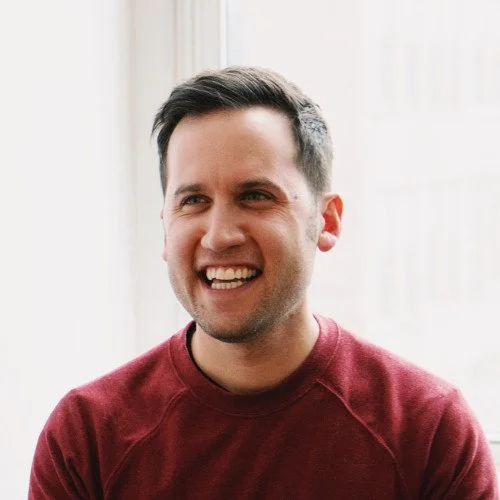VC Michael Mignano on embracing a ‘grow or die’ mentality
Michael Mignano, Partner at Lightspeed Ventures
When Michael Mignano founded his first company in 2015, he received advice to move to the Bay Area. But he wanted to build in New York City.
“It’s the greatest city in the world,” he says.
The company he co-founded, Anchor, aimed to democratize access to recording tools during the initial podcasting boom. It quickly became the world’s largest podcasting platform, and was acquired by Spotify in 2019. Mignano served as the company’s Head of Talk Audio, leading the podcast and video businesses for the audio streaming giant. His early love for music has continued to fuel his longstanding interest in media as a venture capitalist.
Today, Mignano focuses on investing in companies at the intersection of consumer tech and AI as a Partner at Lightspeed Venture Partners. The firm, founded in 2000, manages $28 billion in assets globally. It was an early investor in such innovative businesses as Snap, Stripe, Grubhub, and Carta. Mignano’s own recent investments include Pika Labs, Suno, and Granola.
“Being a founder who is also a VC helps inspire how we tell stories, and how we think about fundraising,” he says. “I think it’s also useful to have been in a founder’s shoes.”
Mignano joined Emily Graffeo, Cross-Asset Reporter with Bloomberg News, at Bloomberg’s Global Headquarters in New York City on Thursday, November 21, 2024, for a conversation as part of the Cornell Tech @ Bloomberg Speaker Series. He spoke about his passion for music, the importance of cultivating a ‘grow or die’ mentality, and how he thinks AI will upend the business of the internet.
Returning to an early passion for media
Mignano started coding early in life, while still in middle school. He and his friends primarily worked in the Visual Basic programming language, building simple word processors and games to run on Windows. “It was just enough to spark my curiosity and get me interested,” he says.
But the future VC’s first obsession was music. A young drummer, he dreamed of becoming a professional musician. But when it came to going away to college, “I did the very safe and very uncool thing,” he says, “and majored in computer science, not music.” After graduating, he became a programming consultant.
Still, after all those years immersed in technology, Mignano found that he missed that foundational love for music. After a few years as a consultant, he pivoted, aiming to enter the music industry “by any means necessary,” he says. That search resulted in a job as a web developer for Atlantic Records.
Lightspeed Venture Partners’ Michael Mignano (right) talking with Emily Graffeo, Cross-Asset Reporter with Bloomberg News (left) on stage during the Cornell Tech @ Bloomberg Speaker Series event at Bloomberg’s Global Headquarters in New York City on Thursday, November 21, 2024.
Embracing the ‘grow or die’ mentality as a founder
Mignano was working at Atlantic Records around the time the App Store launched on the iPhone. “That was the first time I recognized startups as the new version of the rock band,” he says. It’s also when he began to think of software as a form of media. Shortly thereafter, Mignano left the recording company to join a photo editing startup in New York City called Aviary, whose mission was to “democratize creativity,” he says, by building simple phone-based photo editing tools. In 2015, Aviary was sold to Adobe.
During this time, Mignano and his friends were very interested in the podcasting boom, devouring podcasts like “Serial” and Bill Simmons’ “Grantland.”. But “making a podcast in 2015 was like launching a rocket ship,” he says. Creators needed expensive microphones and editing software, along with relationships with hosting platforms.
Mignano and Nir Zicherman, a former Aviary colleague, wondered if they could bring that same ethic of democratization to this new medium. “The mission of Anchor,” he says, “is that you could just talk into your phone, and that was it.”
As an early stage startup, Anchor struggled at times with cash flow and fundraising. To expand its roster of active creators and prove their concept, the co-founders landed on an aggressive goal of 10% growth per week. To meet this goal, they eventually built a function they’d initially rejected: A way to port Anchor podcasts onto other platforms. “That’s the ‘grow or die’ mentality,” says Mignano. “There were no other options.”
By 2019, Anchor had been acquired by Spotify, with Mignano coming to lead the podcast and video businesses for the streaming platform.
Investing in AI tools for the future of business
Mignano says he loved being at Spotify, but his favorite experiences were with the “zero-to-one phase” of startups like Anchor, “where you’re working on the product with a small group of people, all just trying to figure it out.” He shifted into investing as a way to replicate those kinds of relationships.
As an angel investor, the founder was supporting more than 50 companies. He found he liked investing so much that he joined Lightspeed, a global venture capital firm, in 2022.
“What I really couldn’t have predicted at the time is AI. Everything that’s happened since ChatGPT came out has changed the investing landscape, and it’s changed technology.” Since that seismic shift, given his background, Mignano has been particularly focused on AI’s impact on media. Today, “the types of things where we see opportunity are where you can help people get stuff done that otherwise would have taken them a really long time, or a lot of money.”
Mignano says he can already see how AI agents and other tools are transforming the business model of the internet. The media landscape, he notes, is very dependent on humans clicking their way through an ecosystem, for example, visiting a news website and paying attention to the ads that fund the content. However, as AI agents begin doing more of that research for consumers, the traditional ad-based revenue model collapses. At present, he’s particularly interested in investing opportunities that address this emerging reality – opportunities such as TollBit, a startup facilitating payments to websites and outlets from the AI agents that are scraping them.
Mignano says he thinks his dual roles as both a founder and VC have helped him see the industry from multiple angles, and this gives him specific knowledge of what founders need and want. For young tech workers thinking about raising funds in the future, he says it’s never too early to have casual conversations with VCs.
“There’s this old saying in startups and venture capital,” he says. “Ask for money, get advice; ask for advice, get money. I don’t think it’s ever too early to get some casual advice.”
This article was originally published by Tech at Bloomberg.













